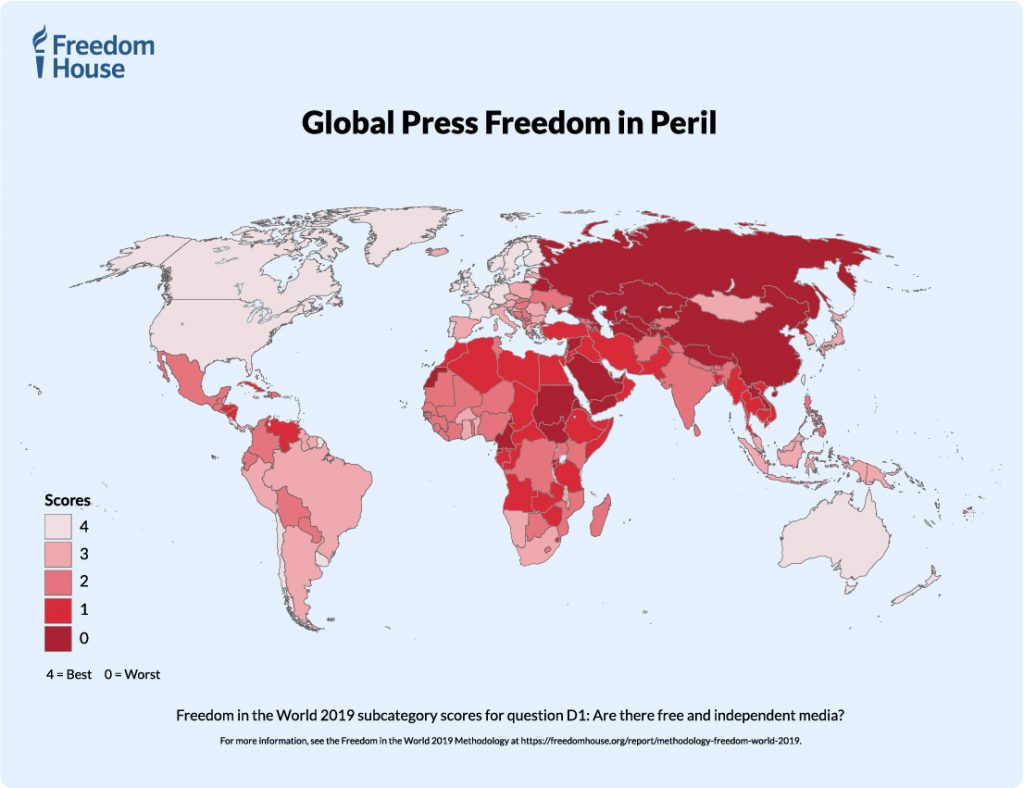Press Freedom Watchdog Notes “More Nuanced” Means Against Media

PRESS FREEDOM watchdog Freedom House released on June 5 its Freedom and the Media 2019 report. It noted the dangerous impact of threats to press freedom on the state of democracy worldwide, and how repressive regimes are using “more nuanced” means to suppress the media.
The report said new forms of repression are “taking hold” in democracies and authoritarian states alike, where political leaders intent on consolidating power are finding new ways to suppress independent journalism.
Freedom House reported how government-backed ownership changes, regulatory and financial pressure, and public denunciation of journalists are being used to silence the press. Proactive government support for friendly media outlets through lucrative contracts, favorable regulatory decisions and preferential access to state information have also been observed “to make the press serve those in power rather than the people.”
But despite such attacks on independent media, the report noted the positive relationship between the strengthening of media freedom and democratization in Ethiopia, Ecuador and Gambia, where an independent press helped make democratic progress possible.
“Experience has shown that press freedom can rebound from even lengthy stints of repression when given the opportunity. The basic desire for democratic liberties, including access to honest and fact-based journalism, can never be extinguished, and it is never too late to renew the demand that these rights be granted in full,” said Sarah Repucci, senior director for research and analysis of Freedom House.
Besides looking into the state of press freedom around the world, Freedom and Media 2019 also includes in-depth essays and recommendations on the implications of China’s globalizing media influence on democracy; the new tools being used by authoritarian leaders to seize and co-opt the media in fragile democracies; how social media have affected press freedom and how policymakers should respond to these developments.
Leave a Reply